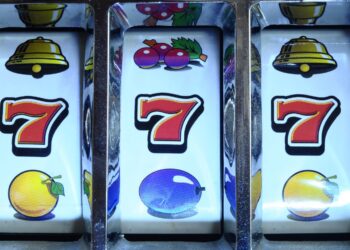City building games aren’t just about placing roads and zoning skyscrapers—they’re about control, imagination, and the deep satisfaction of watching chaos transform into order. Whether you’re carving canals in Cities: Skylines or balancing ancient trade routes in Pharaoh: A New Era, these games tap into something primal in all of us: the need to create, manage, and fix what real life rarely lets us.
It’s no surprise, then, that the genre has remained timeless, reinventing itself for every new generation of gamers. City builders blend creativity with strategy, demanding that you not only design a dream world but also keep its invisible gears turning. And when it comes to picking the best city building games, players often seek ones that strike that perfect balance between control and chaos, where every decision feels impactful.
The Illusion of Power
One of the most fascinating aspects of city builders is how they give players the illusion of absolute power. In real life, we can’t snap our fingers and fix traffic jams or magically balance the economy—but in these games, we can. The joy of demolishing a poorly placed roundabout and rebuilding it better taps into the human craving for mastery and improvement.
Psychologists have long noted that people enjoy environments where their actions have clear, immediate consequences. City builders scratch that itch. Place a school? Watch literacy rise. Build a sewage system? Enjoy the relief of avoiding an outbreak. It’s a constant cycle of action and reward, feeding our dopamine like a never-ending to-do list that’s actually fun to complete.
Creativity Meets Problem-Solving
City building games are also unique because they sit at the crossroads of creativity and logic. On one hand, you’re designing skylines, shaping rivers, and deciding where to put the parks. On the other, you’re troubleshooting power outages, rerouting traffic, and preventing economic collapse.

This duality keeps players hooked because it appeals to two very different psychological needs. Creativity satisfies our desire for self-expression, while problem-solving gives us that sharp hit of accomplishment. Few other genres manage to blend both so seamlessly. The city becomes a reflection of you—your aesthetic, your priorities, even your quirks. Are you the type who zones endless suburbs or someone who builds futuristic megacities with impossible efficiency?
Escaping Reality, One Road at a Time
Another reason city builders captivate us is escapism. In a world where real cities often feel unmanageable—climate change, political gridlock, rising costs—city building games let us dream of better systems. They provide a safe, sandbox-like place to test “what if” scenarios: what if we designed a utopia with perfect green energy? What if public transport actually worked?
Ironically, these virtual experiments can even spill into real-world interest. Some players dive deeper into urban planning or environmental studies after mastering the digital versions. It’s a rare genre where “play” and “learning” blend almost invisibly.
Why We Keep Coming Back
The true genius of city building games lies in replayability. Every map, every challenge, every mod offers a fresh start. You’re not just building structures; you’re constantly refining your own philosophy of governance, aesthetics, and problem-solving. And because failure is never permanent—just bulldoze and try again—the stakes feel high without ever being discouraging.
City building games aren’t just about pixels and polygons; they’re about psychology. They tap into our love of control, creativity, and problem-solving in ways few other genres can. Whether you’re a micromanager or a visionary dreamer, the genre has something for you. And when you’re ready to dive in, digital marketplaces like Eneba make it easier than ever to expand your collection and keep experimenting with new ways to shape your virtual world.












